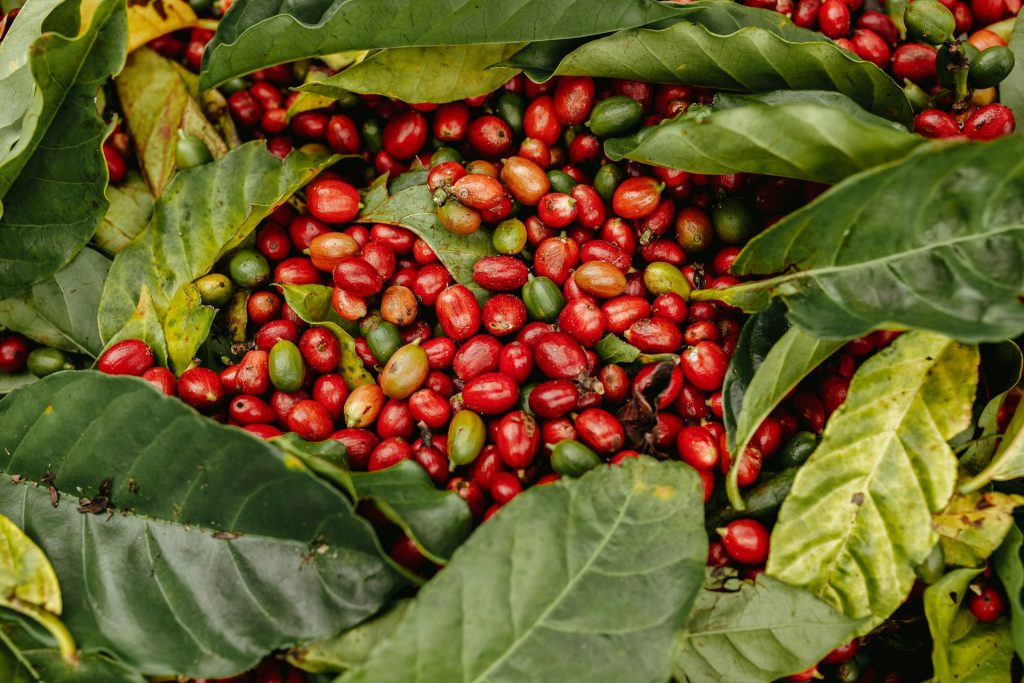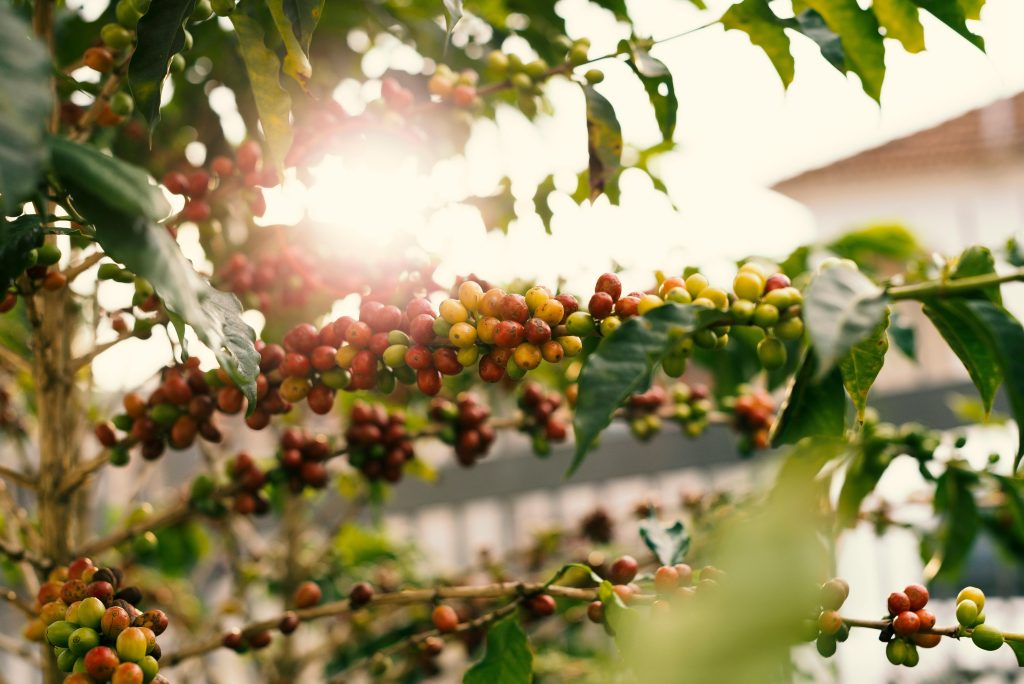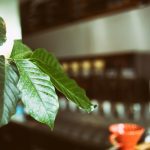Table of Contents
That steaming cup of fair trade coffee isn’t just waking you up – it’s helping protect 240,000 acres of rainforest each year. And that’s just the beginning of how your coffee habit could save the planet.

Why Traditional Coffee Growing Is Killing Our Planet
Most mass-produced coffee comes with a dark environmental price tag. Large coffee plantations often clear-cut forests, creating vast monocultures that destroy natural habitats. They pump the soil full of chemicals, contributing to groundwater pollution and soil degradation. The numbers are staggering – conventional coffee production is responsible for destroying over 2.5 million acres of forest in Central America alone.
The Fair Trade Revolution: Coffee That Grows in Harmony with Nature
Fair trade coffee farms look completely different. Picture this: instead of barren hillsides stripped of all life except coffee plants, you’ll find thriving forest ecosystems. Coffee plants grow naturally in the shade of native trees, surrounded by birds, insects, and other wildlife. This isn’t just better for the environment – it produces richer, more complex flavors in your cup.

Hidden Environmental Benefits You Never Knew About
Your fair trade coffee purchase triggers a cascade of environmental benefits that reach far beyond the obvious:
Water Conservation: Fair trade farms use up to 60% less water than conventional farms through traditional shade-growing methods and water recycling systems.
Biodiversity Protection: A single fair trade coffee farm can host up to 150 species of birds – conventional farms average just 20. These birds naturally control pests, eliminating the need for harmful pesticides.
Carbon Sequestration: The shade trees on fair trade farms can store up to 250 tons of carbon per hectare, making your morning brew an unexpected warrior in the fight against climate change.
The Soil Story: Building Earth’s Future One Cup at a Time
Fair trade coffee farmers are master soil scientists, though they might not call themselves that. They use ancient techniques combined with modern knowledge to build soil health:
Natural mulching from shade trees creates rich, living soil that stores more carbon and requires no chemical fertilizers. This soil holds water better, reducing erosion during heavy rains by up to 70%.
Healthy soil means healthier coffee plants that naturally resist diseases and produce better beans. It’s a win-win for both the environment and your taste buds.
The Magic of Microorganisms: Nature’s Hidden Workforce
Here’s something most coffee drinkers never consider: fair trade coffee farms are teeming with billions of microscopic helpers. These tiny organisms create a complex underground network that makes chemical fertilizers unnecessary. Fungi form partnerships with coffee roots, helping plants access nutrients and water more efficiently. Beneficial bacteria fix nitrogen from the air, naturally fertilizing the soil.
This underground ecosystem is so effective that fair trade farms typically see a 40% reduction in plant diseases compared to conventional farms. It’s nature’s defense system at work.

Climate Change Champions: How Your Coffee Choice Impacts Global Weather
Fair trade coffee farms are becoming unexpected heroes in the fight against climate change. The diverse canopy of shade trees doesn’t just protect coffee plants – it creates a microclimate that helps buffer against extreme weather events.
During droughts, these shade trees reduce ground temperature by up to 15 degrees Fahrenheit, helping coffee plants survive. During heavy rains, their root systems prevent erosion and help soil absorb water, reducing flood risk. This resilience is becoming increasingly crucial as climate change brings extreme weather patterns.
Beyond Coffee: The Forest Garden Effect
Fair trade coffee farms often transform into what agriculturalists call “forest gardens.” These aren’t just coffee plantations – they’re complex agricultural ecosystems where farmers grow multiple crops among their coffee plants.
Fruit trees provide additional shade and income. Nitrogen-fixing plants naturally fertilize the soil. Medicinal herbs grow in the understory. This diversity not only helps protect against crop failure but also provides additional income streams for farming families, reducing pressure to expand into pristine forests.
The Power of Community: Environmental Protection Through Social Impact
Fair trade certification requires farmers to form cooperatives, creating powerful communities that can better protect their local environment. These cooperatives share knowledge about sustainable practices, pool resources for environmental initiatives, and stand united against threats to their forests.
Many cooperatives have established their own environmental monitoring programs, tracking everything from water quality to bird populations. They’re not just farmers – they’re becoming citizen scientists and environmental guardians.
Traditional Knowledge Meets Modern Science
Fairtrade farmers often combine centuries-old traditional knowledge with cutting-edge environmental science. They use smartphone apps to track wildlife while implementing ancient composting techniques. They monitor soil health with modern testing equipment while following traditional lunar planting calendars.
This blend of old and new is creating some of the most sustainable agricultural systems on Earth. Studies show that fair trade coffee farms have 30% more organic matter in their soil and support twice the insect diversity of conventional farms.
Making Your Impact: Every Cup Counts
Your choice matters more than you might think. A single household switching to fair trade coffee can protect up to 100 square feet of rainforest annually. Multiply that by millions of coffee drinkers, and the potential impact becomes enormous.

Want Maximum Environmental Impact? Here’s How to Choose
Look for these additional certifications alongside fair trade for the biggest environmental bang for your buck:
- Organic certification ensures no synthetic pesticides or fertilizers
- Rainforest Alliance certification focuses specifically on forest protection
- Bird Friendly certification requires the highest standards of shade growing

The Real Cost of “Cheap” Coffee
What most people don’t realize is that cheap, mass-produced coffee comes with hidden environmental costs that we’re all paying for. When forests are cleared for conventional coffee production, we lose vital ecosystem services worth an estimated $4,000 per hectare annually. These services include:
Natural water filtration that keeps rivers clean. When forests are cleared, water treatment costs for nearby communities skyrocket. Communities near fair trade farms save an average of 30% on water treatment costs.
Natural pest control from birds and beneficial insects. Without these allies, conventional farms spend up to $200 per acre on pesticides annually. Fair trade farms get this service for free from nature.
Why Your Next Cup Matters More Than Ever
Climate scientists have identified coffee-growing regions as critical “buffer zones” that could help protect surrounding ecosystems from climate change impacts. Fair trade coffee farms act as living laboratories, demonstrating how agriculture can actually restore environmental health rather than destroy it.
The next time you’re deciding which coffee to buy, remember: your choice ripples far beyond your cup. It reaches into the soil, through the forest canopy, and into the future of our planet. The best part? Making the environmentally right choice also means choosing better-tasting coffee. Now that’s something worth waking up for.

I’m Audrey, a dedicated mother of teenagers with an insatiable love for coffee. On BeanBrewLove.com, I intertwine my need for caffeine with reflections on life. Whether expressing a nostalgic sentiment or injecting a hint of sarcasm, my blog is a reservoir of coffee culture, brewing techniques, and global coffee reviews.




